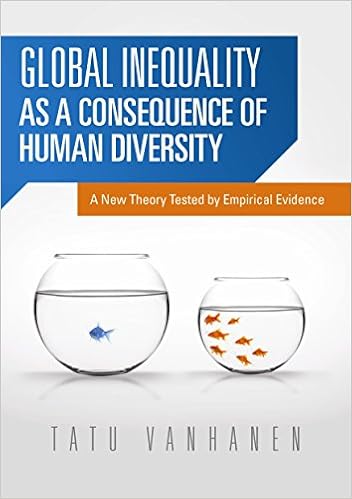But are fundamental improvements even possible? Development aid has been jokingly described, for example by the great dissenting development economist Peter Bauer, as “financial assistance which the poor people in rich countries provide to the rich people in poor countries.” Even where the money is not appropriated by the parasitic Third World ruling class, it is generally consumed to meet immediate needs rather than capitalized in order to build for the future.
Part of the debate which rages around Third World poverty concerns its causes. In his new book, Global Inequality as a Consequence of Human Diversity, Finnish political scientist Tatu Vanhanen divides common explanations into “cultural theories, modernization theories, dependency and world-system theories, [and] political and institutional theories.”
In his new book, Vanhanen distinguishes six measures of poverty/wealth and checks how well they correlate with IQ:
National income per capita: .646
Tertiary education: .787
Child mortality: .795
Life expectancy: .815
Sanitation: .725
Index of Democratization: .556
From these six dimensions of poverty, Vanhanen constructs an overall Index of Global Inequality (IGI). This comprehensive figure correlates better with IQ than any of the six dimensions taken singly, at .864.This means that natural differences in IQ can explain nearly three-quarters of global inequality (=0.864²). All environmental factors taken together do not explain more than one quarter of the difference.
Truly, development theorists are missing the elephant in the room by ignoring genetics and IQ.
Whether the message will ever get through to mainstream scholars remains to be seen. But we can speculate on what the consequences would be.
First of all, Third World development programs will have to lower their sights considerably and pursue more modest aims. This might involve, e.g., promoting sounder agricultural and sanitary practices in Africa rather than attempting to replicate the industrial revolution there.
Second, recognizing reality could also mean a shift away from the current preoccupation with relative poverty. For, while rich countries may indeed be getting richer, this does not mean that poor countries are getting poorer. Many of them, especially in Asia, are merely getting rich more slowly than the already rich. Large-scale famines, once a common event, seem to have disappeared from Asia. During the last third of the twentieth century, life expectancy at birth for developing countries increased from 46 to 62 years, the adult literacy rate has increased from 48 to 70 percent, and average GDP per capita rose from $330 to $867. This should be celebrated—not bemoaned as “rising global inequality.”
Third, of course, current immigration policies are simply importing Third World colonies into the First World.
Personally, I would also like to see a shift away from our present obsession with the material side of well-being. Above a rather modest material level, life satisfaction does not correlate well with personal wealth or income. Yet it is hard to find much recognition of this today apart from the work of Charles Murray (see the last section of Coming Apart).
Getting mainstream scholars to adopt a broader and sounder view of human well-being may end up proving more difficult than getting them to accept the reality of individual differences. But, in the end, it must be done.
F. Roger Devlin [Email him] is a contributing editor for The Occidental Quarterly and the author of Alexandre Kojeve and the Outcome of Modern Thought.
 Third World poverty has proved an intractable problem. You can sense the frustration in European development theorist Ignacio Ramonet’s saying that satisfying all the world’s sanitation and food requirements would cost “hardly as much as the people of the United States and the European Union spend each year on perfume.” [Le Monde Diplomatique, November 1998]. Nor is it only Leftist egalitarians who would like to see conditions improve for the world’s poor. Immigration patriots realize that a higher quality of life in the Third World would do more than just about anything else to ease the pressure of immigration to the affluent West.
Third World poverty has proved an intractable problem. You can sense the frustration in European development theorist Ignacio Ramonet’s saying that satisfying all the world’s sanitation and food requirements would cost “hardly as much as the people of the United States and the European Union spend each year on perfume.” [Le Monde Diplomatique, November 1998]. Nor is it only Leftist egalitarians who would like to see conditions improve for the world’s poor. Immigration patriots realize that a higher quality of life in the Third World would do more than just about anything else to ease the pressure of immigration to the affluent West.